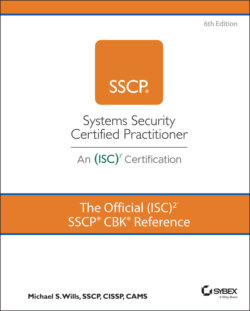Читать книгу The Official (ISC)2 SSCP CBK Reference - Mike Wills - Страница 50
Privacy versus Security, or Privacy and Security
ОглавлениеIt is interesting to see how the Global War on Terror has transformed attitudes about privacy throughout the Western world. Prior to the 1990s, most Westerners felt quite strongly about their individual rights to privacy; they looked at government surveillance as intrusive and relied upon legal protections to keep it in check. “That's none of your business” was often the response when a nosy neighbor or an overly zealous official tried to probe too far into what citizens considered as private matters. This agenda changed in 2001 and 2002, as national security communities in the United States and its NATO allies complained bitterly that legal constraints on intelligence gathering, information sharing, and search and seizure hampered their efforts to detect and prevent acts of terrorism. “What have you got to hide,” instead, became the common response by citizens when other citizens sought to protect the idea of privacy.
It is important to realize several key facets of this new legal regime for the 21st century. Fundamentally, it uses the idea that international organized crime, including the threat of terrorism, is the fundamental threat to the citizens of law-abiding nations. These new legal systems require significant information sharing between nations, their national police and law enforcement agencies, and international agencies such as the OECD and Interpol, while also strengthening the ability of these agencies to shield or keep secret their demands for information. This sea change in international governance started with the Uniting and Strengthening America by Providing Appropriate Tools Required to Intercept and Obstruct Terrorism Act of 2001, known as the USA PATRIOT Act. This law created the use of National Security Letters (NSLs) as classified, covert ways to demand information from private businesses. The use of NSLs is overseen by the highly secret Foreign Intelligence Surveillance Court, which had its powers and authorities strengthened by this Act as well. Note that if your boss or a company officer is served with an NSL demanding certain information, they cannot disclose or divulge to anyone the fact that they have been served with such a due process demand. International laws regarding disclosure and reporting of financial information, such as bank transactions, invoices and receipts for goods, and property purchases, are also coming under increasing scrutiny by governments.
It's not the purpose of this chapter to frame that debate or argue one way or another about it. It is, however, important that you as an information security specialist within your organization recognize that this debate is not resolved and that many people have strongly held views about it. Those views often clash with legal and regulatory requirements and constraints regarding monitoring of employee actions in the workplace, the use of company information or information systems by employees (or others), and the need to be responsive to digital discovery requests of any and every kind. Those views and those feelings may translate into actions taken by some end users and managers who are detrimental to the organization, harmful to others, illegal, unethical, or all of these to a degree. Such actions—or the failure to take or effectively perform actions that are required—can also compromise the overall information security posture of the organization and are an inherent risk to information security, as well as to the reputation of the organization internally and externally.
Your best defense—and your best strategy for defending your company or your organization—is to do as much as you can to ensure the full measure of CIANA+PS protections, including accountability, for all information and information systems within your areas of responsibilities.
